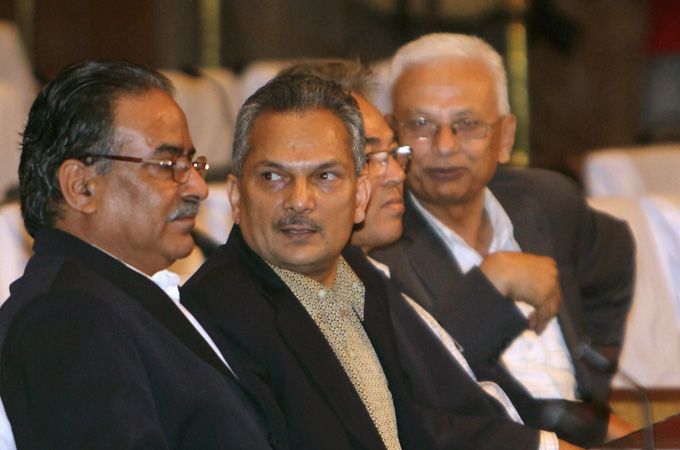Nepal elects Maoist prime minister
Former rebel leader Baburam Bhattarai wins vote after weeks of failure by politicians to form national unity government.

 |
| Bhattarai will form a coalition government with smaller parties that supported him in Sunday’s vote [Reuters] |
Nepal’s parliament has elected the deputy head of the former Maoist rebels as the country’s new prime minister, in the latest attempt to form a stable government after extended political uncertainty.
Baburam Bhattarai of the Communist Party of Nepal received 340 votes in the 601-seat parliament on Sunday, after receiving the backing of the Samyukta Loktantrik Madhesi Marcha, a loose alliance of five regional parties from the country’s southern plains.
“Baburam Bhattarai secured 340 of the 574 votes cast, giving him a majority,” Speaker Subash Chandra Nemwang told parliament.
Bhattarai must now form a coalition government including members of the smaller parties that supported him in Sunday’s vote.
The two other major parties, Nepali Congress and the Communist Party of Nepal (United Marxist Leninist), have opted to stay out of the Maoist-led government.
Maoist rebels fought the central government in a bloody conflict during which 16,000 died before turning to mainstream politics and winning elections in 2008.
However, they do not have enough seats to govern alone and struggled to hold together the Maoist-led government that fell in 2009.
The second largest party, the Nepali Congress, has also been unable to build a stable ruling coalition, while plans to revert instead to a national unity government have repeatedly collapsed.
The parliament, or Constituent Assembly, elected in 2008, was tasked with drafting a post-war constitution but it has failed to reach a consensus on the new charter amid political deadlock.
One of the key sticking points in the peace plan has been the proposed integration of 19,000 former Maoist rebel fighters into the army, with military leaders and the Nepali Congress resisting the move.
Crisis deepens
The crisis deepened when Jhalnath Khanal resigned as prime minister on August 14, blaming the lack of progress made over the country’s peace process and the constitution.
Khanal took the job only in February when the role had been vacant for seven months in a power struggle following the ten-year civil war that ended in 2006.
Bhattarai, 57, is the deputy leader of the Maoist group which fought government troops until 2006 demanding political reforms and an end to the centuries-old monarchy.
Bhattarai remained in hiding during the 10 years of fighting. He is believed to be the chief planner of the Maoists’ strategy, both during the years of fighting and in peace time.
Bhattarai’s major challenge will be to complete the peace process that began with the Maoists giving up their armed revolt.
Addressing parliament before voting began, Bhattarai said the election was to decide “whether to tread the path of peace and constitution or go back to the conflict”.
“It’s very unfortunate that we were not able to form a consensus government,” he said. “The country is also caught in a cycle of frustration and uncertainty.
“My candidacy is to prove the nay-sayers wrong. I believe that the country’s future is very bright and we can accomplish the task of constitution-drafting and complete the peace process,” he said.